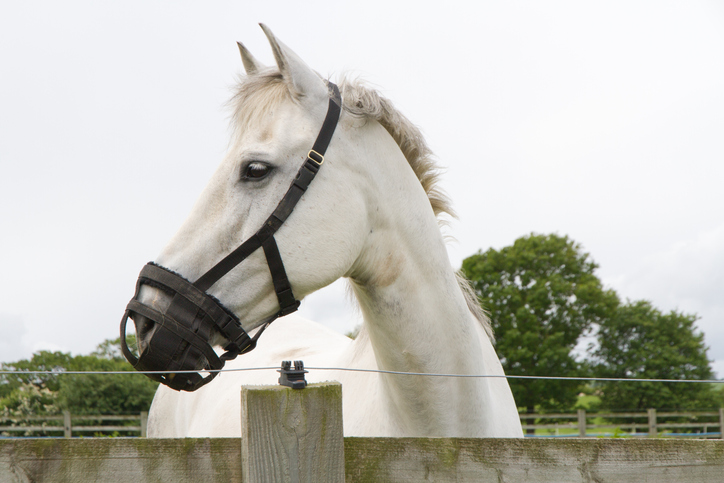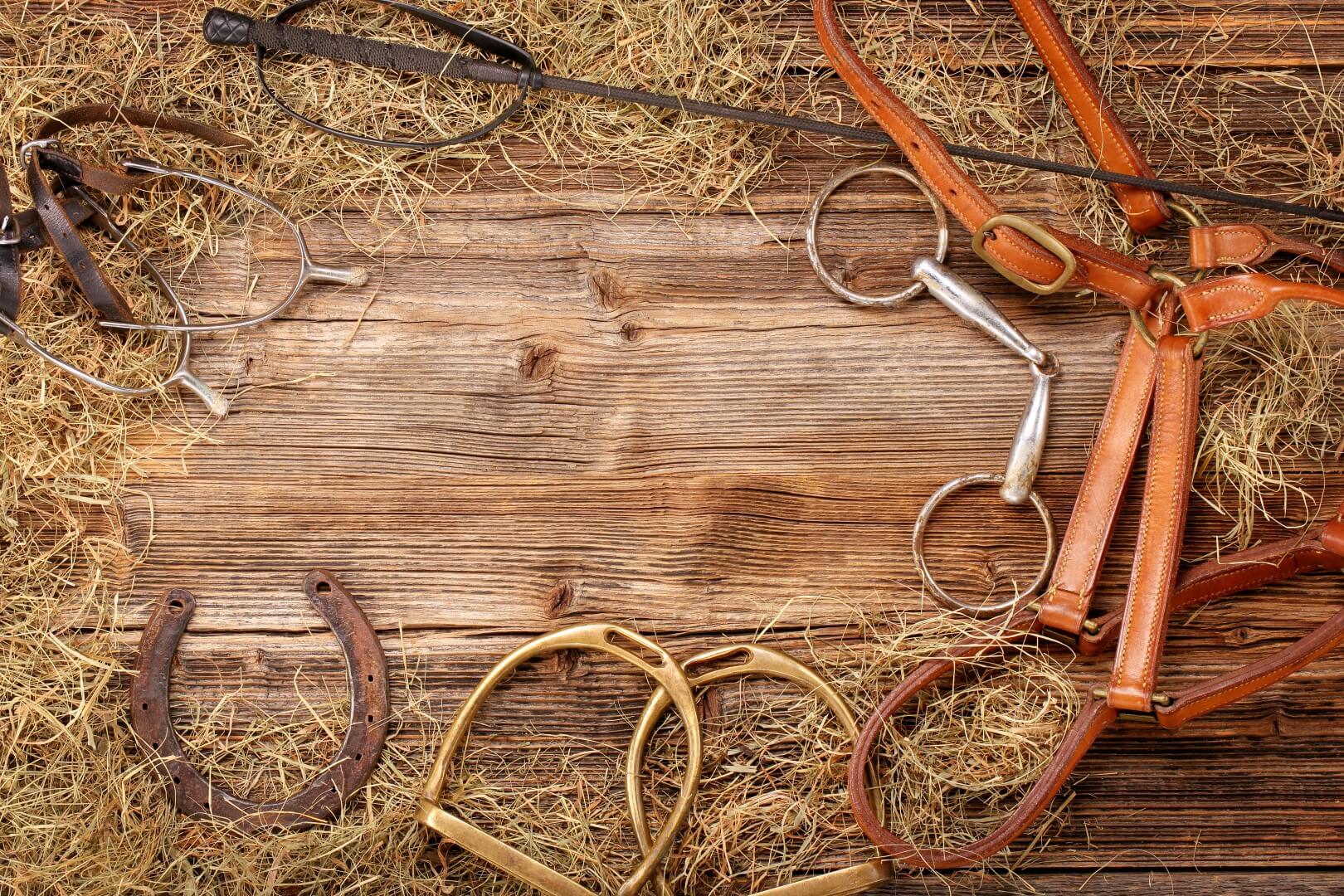Q: My TB-cross gelding is a very good do-er and right now (at the end of winter) he’s in great condition. Trouble is that the grass will explode shortly, and so will his waist line. I don’t like to lock him up, as it restricts his movement too much, and also means I have to keep his (elderly) paddock mate locked up too. I can use electric tape to some extent but I’d rather try a grazing muzzle so his mate can graze ad-lib. Can you give me some advice about how to introduce this?
JM, Waikato

A: Nutritionist Dr Lucy Waldron replies:
This is a common problem, and has been particularly so this winter going into spring, when the weather has been unseasonably warm for much of the last three to four months, and so the grass has kept steadily growing in many parts of the country.
Hence, we have seen laminitis over winter, due to the high sugar and up to 36% protein in the grass in some areas.
Grazing muzzles can be very effective, but your horse will need to get used to it first, by wearing it for short periods of time. Most horses seem to accept grazing muzzles quite quickly – although some can, and will, get them off.
Do remember that short, actively-growing grass will contain more sugar and protein compared to older grasses, and, if endophyte rye grass, will contain more mycotoxins. So if it’s possible to let some of your paddocks grow to the point they are ‘standing hay’, then it will be much safer for your horse’s waistline to graze on this kind of pasture.
Sugar levels are lower during night time, so you can try turning your horses out at night to avoid sugar; but good do-ers will convert the fibre anyway, so this may not help too much.
The issue with strip grazing is that horses tend to gorge and then have little to eat for the rest of the day, which can cause problems such as stomach ulceration.
So, you may have to do some locking up and feeding of mature hay to control his grass intake, I’m afraid.









